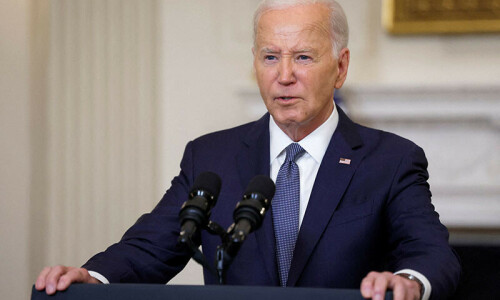THE US and the EU are blocking a treaty that would give the world’s blind and visually impaired people — 90 per cent of whom live in the developing world — easier access to published works in formats they can use.
A ‘treaty for blind people’ has been under discussion at the World Intellectual Property Organisation (WIPO) since 2008, but negotiations have made little progress. In the latest round of talks in Geneva, which ended on last Wednesday, negotiators deferred a decision on the issue once again, to the dismay of activists.
“This is not just a legal issue — for us, this is a moral issue. It’s about human rights,” said Teresa Hackett, programme manager at Electronic Information for Libraries, a non-profit group based in the Netherlands.
There are about 256 million visually impaired people in the developing world, according to an estimate by the World Health Organisation. In many rich countries, blind people have ready access to works that have been translated into braille and other accessible formats such as audio and large-print books, although, according to the EU, only 5 per cent of books are accessible to blind people in wealthy states.
However, under existing copyright law, poorer countries can’t access those translations without getting the express permission of the copyright holder. Few developing country governments have managed to do that, meaning that their blind and visually impaired populations are left with barely anything to read. The EU estimates that less than one per cent of books are accessible to blind people in poorer countries.
“The Spanish organisation Once has well over 100,000 [translated] books that they would like to send to Latin American countries, but they can’t simply because of this copyright barrier,” said Dan Pescod of the Royal National Institute of Blind People. Libraries in five Latin American countries — Colombia, Nicaragua, Mexico, Uruguay and Chile — have fewer than 9,000 accessible books between them, he said. A treaty at Wipo could change that. A binding agreement would mean people in the global south could get immediate access to books that have already been translated into accessible formats in other countries. A treaty would also lead to enormous cost savings, as expensive translation has to be replicated in every country that wants to produce an accessible form of a given book.
The European parliament passed a resolution in February calling on the EU to support a binding treaty for the blind, but it does not appear to be having much impact. “The EU and the Americans are blocking the treaty — that’s what’s going on,” said James Love, director of Knowledge Ecology International. “It’s shameful what they’re doing.”
Europe and the US are home to some of the world’s biggest publishing companies, many of which don’t like the idea of an international treaty that would restrict their intellectual property rights. — The Guardian, London









































Dear visitor, the comments section is undergoing an overhaul and will return soon.